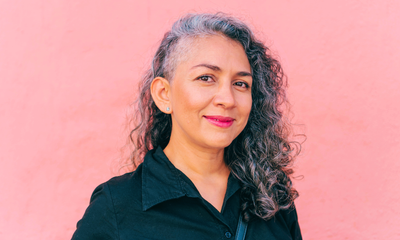A few years ago, Prince Harry and Meghan Markle announced that they are pregnant with their first child. Around the same time, Adrienne Bailon shared her personal struggle with getting pregnant. While we wished both of these women successful and healthy pregnancies, we also know one woman is more than likely to face more complications during childbirth than the other woman is. Serena Williams revealed terrifying details about her labor as well, including developing blood clots in her lungs, and how she almost died giving birth. Beyoncé has also shared that she suffered from pre-eclampsia during her second pregnancy. Unfortunately, their experiences are not uncommon for a lot of Black and Latina mothers but sharing their stories has brought both social awareness about maternal health equity and medical attention to the needs of Black and Latina mothers in the delivery room.
A new study, published in November 2018 in the Journal Obstetrics & Gynecology, shows that childbirth complications happen in 1.6 percent of all deliveries but that the rate of Black and Latina mothers who suffer serious problems during childbirth, including death, is 70 percent higher than white women. Despite some of the women being healthy before the pregnancy, the study shows that in the delivery room, Black and Latina mothers are facing severe health issues like blood clots, kidney failure, sepsis, eclampsia and heart failure at higher numbers.
The study used data from 10 kinds of life-threatening conditions like heart failure, kidney failure, ventilation, shock, acute respiratory distress syndrome, eclampsia, hysterectomy, and sepsis. The study also showed blood transfusions, used mainly in women suffering a serious hemorrhage were the most common and accounted for 75 percent of cases and the biggest racial disparity.
The study also suggests that in the delivery room, doctors need to pay extra attention to Black, Latina and women of color – listening to them when they say they are in pain, considering pre-existing conditions, and preparing for complications ahead of time. Additionally, researchers found that if all women were to have the same outcomes as white women, it would result in roughly 8,100 fewer lifesaving medical procedures and 28 percent fewer severe health complications among racial and ethnic minority women with Black women seeing the biggest improvement.
Lead study author and obstetrician, Dr. Lindsay Admon, told the Daily Mail that “It’s fantastic and important that two such strong high-profile women have come forward and shared their stories and it’s important we encourage women to do so. We’re finally shedding a light on racial and ethnic disparities and if we continue to shed that light describing health status and outcomes among Hispanic and black women during birth, it will encourage a larger community of women to share their experience with families, communities and health care providers.”
The realm of health and technology has seen a surge of responses from underrepresented founders addressing maternal health challenges specifically tailored for Black and Latina mothers, and other women of color mothers. Yet, securing funding remains a notable challenge, largely influenced by the racial and gender composition of our Black and Latina communities.
Amazingly, the needle is moving ever so slightly as more funding from our own Black and Brown venture capitalists have gone to a few Black and Latina trailblazers in maternal health. However, it's never enough as they say, for women founders of color. As many more remain under funded, underestimated and overlooked in both technology, health industries and as policy makers.
Here Are Startups That Are Tackling Maternal Challenges And Reproductive Justice for Black and Latina Mothers -
Mahmee is a groundbreaking platform in maternal and infant healthcare, connecting new mothers, healthcare providers, and insurers for seamless care coordination and support. Founded by Melissa Hanna and Linda Hanna, Mahmee aims to address maternal health disparities, especially among Black and Latina mothers, through personalized care plans and accessible resources.
Cayaba Care offers tailored flexible and affordable maternal health support for Black and Latina women. Co-founded by Dr. Olan Soremekun, their programs help connecting to doulas, mental health support and more to address disparities and promote wellness.
Health In Her HUE is a digital platform that connects women of color to culturally competent and sensitive healthcare providers, and offers health information and content that centers their lived experiences.
Mae is a pioneering company dedicated to maternal health for Black women. Through their platform, Mae addresses the unique needs and challenges faced by Black mothers, offering personalized care plans, educational resources, and community support. Founded with a mission to improve maternal health outcomes and equity, Mae strives to empower Black women on their journey to motherhood.
The health and technology sectors are witnessing a notable surge in initiatives from underrepresented women of color founders aimed at addressing maternal health challenges and equity tailored for Black and Latina mothers, and other women of color.
Do you know of a Black and Latina founder in the maternal health space? Let us know!






